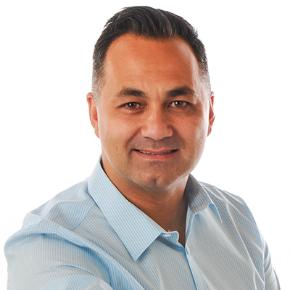Brett explains why what we believe is critical for the way we live. The truth—or what’s false—affects us deeply.
I’m bothered. Recently I spoke with a youth worker who told me he was not teaching theology and apologetics to the students in his youth group because he was focusing on “practical Christian living.” He’s well-intentioned but with this approach, I have no confidence much practical Christian living is going to happen in the lives of those students. This dichotomy between beliefs and behavior represents a profound misunderstanding amongst Christians and it harms our young people. Here’s why.
We are what we think. Recent discoveries in neuroscience make this clear. Change your thoughts and you can change your brain chemistry. In turn, these brain alterations affect how we deal with things like anger and anxiety. False ways of thinking lead to destructive patterns of living. When young people have false ideas about God, His requirements, the authority of Scripture or the meaning of life, certain behaviors follow. We live at the mercy of our ideas.
Of course, before neuroscience came along God had been telling humanity this from the beginning. His Word is filled with instruction about the relationship between thought and action:
- Hosea 4:5 & 6—You stumble day and night, and the prophets stumble with you...my people are destroyed from lack of knowledge.
- Romans 1:28 & 29—Furthermore, since they did not think it worthwhile to retain the knowledge of God, he gave them over to a depraved mind, to do what ought not to be done. They have become filled with every kind of wickedness...
- Romans 12:2—Do not conform any longer to the pattern of this world, but be transformed by the renewing of your mind.
- Philippians 4:8—Finally, brothers, whatever is true, whatever is noble, whatever is right, whatever is pure, whatever is lovely, whatever is admirable—if anything is excellent or praiseworthy—think about such things.
- Colossians 1:9 & 10—For this reason, since the day we heard about you, we have not stopped praying for you and asking God to fill you with the knowledge of his will through all spiritual wisdom and understanding. And we pray this in order that you may live a life worthy of the Lord and may please him in every way: bearing fruit in every good work, growing in the knowledge of God...
- 2 Timothy 2:25—Those who oppose him he must gently instruct, in the hope that God will grant them repentance leading them to a knowledge of the truth.
We always live up—or down—to our ideas. If we simply target our teaching at young people’s behavior, little transformation will follow. The root cause—false thinking—still remains, and thus, bad behavior will continue.
As we study theology, we change our patterns of thinking. They discover the truth about God. They discover the truth about themselves. They discover why those things are true. And the truth transforms.

